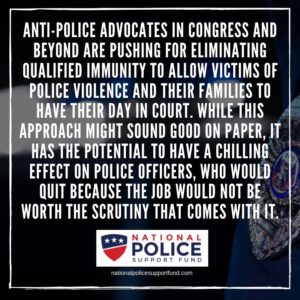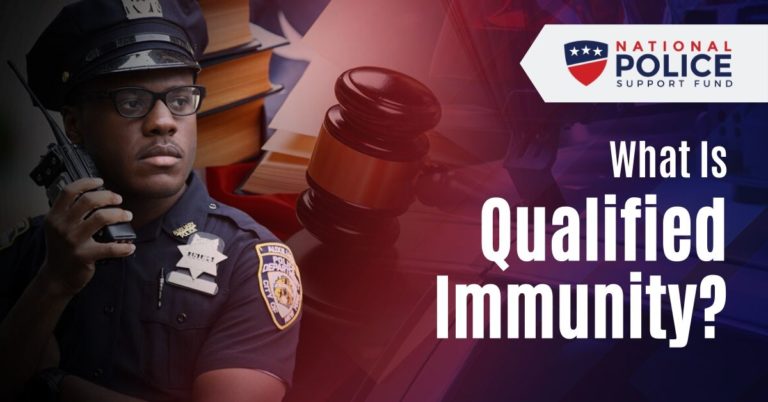The term qualified immunity has been thrown around a lot in the past few weeks as incidents of police conduct come into question. As police officers and the people who support them, it’s important to separate fact from fiction and understand your rights when behavior is called into question.
According to the Legal Information Institute at Cornell Law School, qualified immunity “protects a government official from lawsuits alleging that the official violated a plaintiff’s rights, only allowing suits where officials violated a “clearly established” statutory or constitutional right.”
In essence, qualified immunity shields police officers and other government officials from frivolous lawsuits, ensuring that they can make the best decisions for their situation without fear of unnecessary legal action.
The practice dates back to 19th-century common law but came into the modern era in the 1982 case of Harlow v. Fitzgerald, in which the U.S. Court of Appeals established that a plaintiff could overcome qualified immunity only by showing that the defendant’s conduct “violate[d] clearly established statutory or constitutional rights of which a reasonable person would have known.”
There are two important things to note here that form the basis for every qualified immunity case, and are the source of the controversy surrounding the practice now:
- The courts consider whether a reasonable public official would have known that the conduct in question violated the plaintiff’s rights. Some argue that this allows for too much discretion in favor of the police or other officials.
- The law that the official is charged with violating must have been in effect at the time of the alleged violation, not at the time the court considers the case. This is very important, as standards and best practices in police conduct are constantly evolving.

The standard set in the Harlow case does not prohibit people from suing police or other elected officials. Instead, it offers those officials more protection under the law and makes the standard of proof higher for those bringing the suits.
The U.S. Supreme Court took things one step further in 2009 in the Person v. Callahan case, which said “qualified immunity balances two important interests—the need to hold public officials accountable when they exercise power irresponsibly and the need to shield officials from harassment, distraction, and liability when they perform their duties reasonably.”
Qualified immunity does not absolve public officials from paying monetary damages, but is aimed at reducing the cost of a trial. Courts typically seek to resolve qualified immunity cases as early as possible.
Anti-police advocates in Congress and beyond are pushing for eliminating qualified immunity to allow victims of police violence and their families to have their day in court. While this approach might sound good on paper, it has the potential to have a chilling effect on police officers, who would quit because the job would not be worth the scrutiny that comes with it.
As anyone who has spent time as a police officer can tell you, it’s stressful enough having to make life and death decisions day in and day out — sometimes multiple times per day. Putting the men and women who we trust to protect our communities under the kind of microscope that comes with repealing qualified immunity would only make the pressure even greater.
As the court ruled in Pearson v. Callahan, qualified immunity protects government officials who are acting responsibly, which the vast majority of law enforcement officers do every day.
It is not a blanket policy to commit wrongdoing; it is there to help ensure that police and other government officials can complete their jobs to the best of their abilities day in and day out abiding by the rule of law that we all pledge to serve and protect.
It’s an interesting phenomenon to watch elected officials and citizens get ‘up in arms’ and debate about a topic that they themselves don’t seem to fully understand. Don’t get us wrong- it is an extremely important topic and affects police officers even more than most of the other reform measures floating around Congress these days, but we think it is important for people to have a foundational understanding of the issue before debating it. Read more here.








